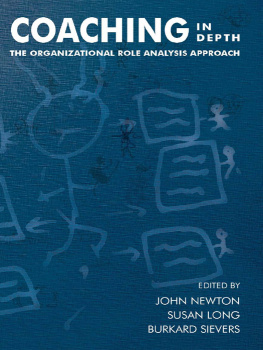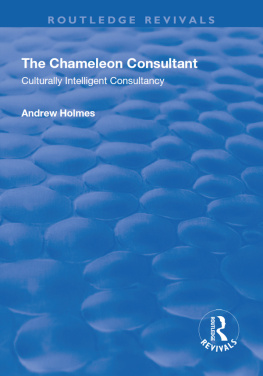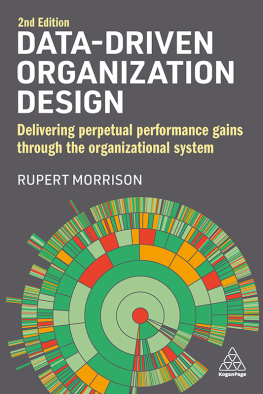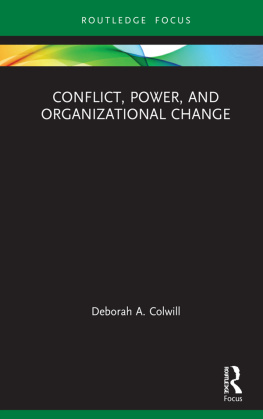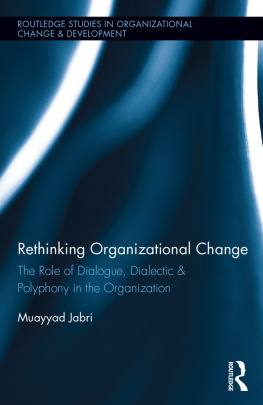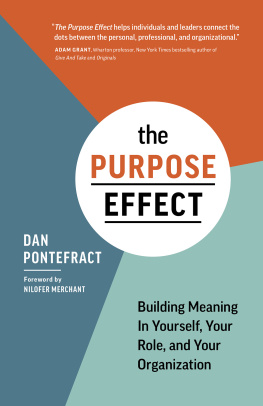Arrangement copyright 2006 John Newton, Susan Long, and Burkard Sievers to the edited collection and the individual authors to their contributions.
The right of the contributors to be identified as the authors of this work has been asserted in accordance with 77 and 78 of the Copyright Design and Patents Act 1988.
All rights reserved. No part of this publication may be reproduced, stored in a retrieval system, or transmitted, in any form or by any means, electronic, mechanical, photocopying, recording, or otherwise, without the prior written permission of the publisher.
A CI.P. for this book is available from the British Library
Edited, designed and produced by The Studio Publishing Services Ltd, www.studiopublishingservicesuk.co.uk e-mail:studio@publishingservicesuk.co.uk Printed in Great Britain
ABOUT THE EDITORS AND CONTRIBUTORS
John Bazalgette, Senior Consultant at The Grubb Institute, joined Bruce Reed from school teaching in 1966. He has consulted to leaders and executives in a variety of fields including global companies and small voluntary organizations, using the Institutes ORA method. He has worked extensively in the UK, France, Ireland, Spain and the Netherlands as well as the USA and Australia. Drawing on his experience in education he has written, lectured and broadcast about the ways in which organizational structures can support and further young peoples growth and development in learning to take up adult roles in society.
Ullrich Beumer, Dipl. Pd.; Supervisor (DGSv); is Director of inscapeInstitute for Psychoanalysis, Supervision und Organization Development, Coesfeld; Co-editor Freie Assoziation; Symposium Chair 2004 International Society for the Psychoanalytic Study of Organizations (ISPSO).
Hanna Biran, is a clinical psychologist and organizational consultant. She is a lecturer on Group Psychotherapy at the Tel-Aviv University, School of Medicine and works in private practice with individuals and groups. She is also a member of the Tel-Aviv Institute of Contemporary Psychoanalysis (TAICP), a member of the Israeli Institute of Group Analysis (IGA) and a member of ICS (Innovation and Change in Society).
Irving Borwick, MA (Chicago), PhD (Boston) is presently the Managing Director of Borwick International Inc., an international management consulting firm with offices in New York and Brussels. Borwick International specializes in bringing about change in large systems, with particular emphasis on strategic planning, corporate culture change, and organizational integration. Prior to this he held senior positions in the human resource field with Coca-Cola in Atlanta, Georgia, the International Telephone and Telegraph Company in Belgium, and Steinbergs Ltd in Canada. Before he entered the corporate world he lectured in English literature at McGill University, Montreal Canada. Dr Borwick has published numerous articles in journals and books.
Jane Chapman, BA, MBA, is a marketing and organizational consultant in Sydney, Australia and a member of the International Society for the Psychoanalytical Study of Organizations. Her work of recent years has had the aim of exploring the spaces between her two disciplines of marketing and organizational behaviour from a socio-analytic stance.
Laurence J. Gould, PhD is a Former Professor and Director, The Clinical Psychology Doctoral Program, The City University of New York, and Director of the Socio-Psychoanalytic Training Program, The Institute for Psychoanalytic Training and Research (IPTAR). He is the Co-Editor of Organizational and Social Dynamics, An International Journal for the Integration of Psychoanalytic, Systemic and Group Relations Perspectives, and is in the private practice of psychoanalysis and organizational consultation in New York City.
W. Gordon Lawrence, MA, Dr. rer. oec, is Managing Partner of Symbiont Technologies LLC, New York and a Director of Symbiont Ventures, London. He is a widely published innovator within the Group Relations tradition and is a former board member of the International Society for the Psychoanalytic Study of Organizations.
Susan Long, PhD, is Professor of Creative and Sustainable Organizations at Royal Melbourne Institute of Technology University, Australia. She is editor of Socio-Analysis, past President of the International Society for the Psychoanalytic Study of Organizations, and President of Group Relations Australia.
Rose Redding Mersky is an organizational development consultant and president of Redwood Executive Consulting, Inc., a firm that helps corporate executives and other leaders elevate morale, retain and attract valued employees, manage transitions, and enhance professional success. She is a past-President of the International Society for the Psychoanalytic Study of Organizations and its current Director of Professional Development. She is co-director of Organizational Psychodynamics and Transformations, a professional development programme for managers, organizational consultants, supervisors, trainers, and psychoanalysts in Coesfeld, Germany. Her presentations and publications focus on the intimacy of consulting as a profession. She serves on the editorial board of the journal Freie Assoziation.
John Newton, PhD, is Associate Professor of Organization Dynamics at the Royal Melbourne Institute of Technology University, Melbourne, Australia, where he is the founding director of graduate programmes in Organization Dynamics. A member of the International Society for the Psychoanalytic Study of Organizations, his work as an educator, consultant, and action researcher is characterized by his interest in learning from experience.
Bruce Reed was Founder and President of The Grubb Institute of Behavioural Studies. An Australian, he first trained as an architect and was then ordained in the Church of England, studying theology in Sydney and at Cambridge. He became involved in the study of groups and organizations in the 1950s and worked with Ken Rice and Pierre Turquet in some of the earliest group relations conferences. Describing himself as an organizational analyst, Bruce worked to develop a consistent framework of concepts and methods of study which would illuminate experience of life in organizations and communities. He generated a stream of original ideas about the interaction between person, system, context, and role, arising in particular from his work using ORA with leaders and executives in a wide range of organizations. The vast majority of these were presented in confidential consultancy reports, though some were expressed in lectures. His book, The Dynamics of Religion, published in 1978, has been a required text for theological students all over the world. The present paper is the last one he wrote before his death in November 2003.
Burkard Sievers, Dipl.-Soz., Professor of Organization Development, Bergische Universitt Wuppertal; Co-editor Freie Assoziation; President (2005-2006), International Society for the Psychoanalytic Study of Organizations (ISPSO).
Introduction
John Newton, Susan Long, and Burkard Sievers
This book had its origins in conversations between the editors that were prompted by our links to the International Society for the Psychoanalytic Study of Organizations (ISPSO). In discussing the challenges and benefits of taking a psychoanalytic stance in our professional practice, whether in our teaching, research, or consultation services, we realized that increasingly we were using methods that were designed to enable individuals and work groups to find the courage, understanding, and authority to negotiate their work roles under conditions of persistent upheaval. A common thread we discovered in our professional histories was our involvement, initially at quite different times and places, in group relations conferences conducted in the tradition of the Learning for Leadership model developed at the Tavistock Institute of Human Relations, and first published by Rice (1965). We, like many other participants, had found our group relations experiences a profound exposure to the undercurrents of organizational life, within a setting and conceptual foundation that supported disciplined investigation of system psychodynamics, particularly as they impacted on task performance. Subsequently, each of us had incorporated and adapted this framework to our professional practice with individuals, groups, and organizations.

